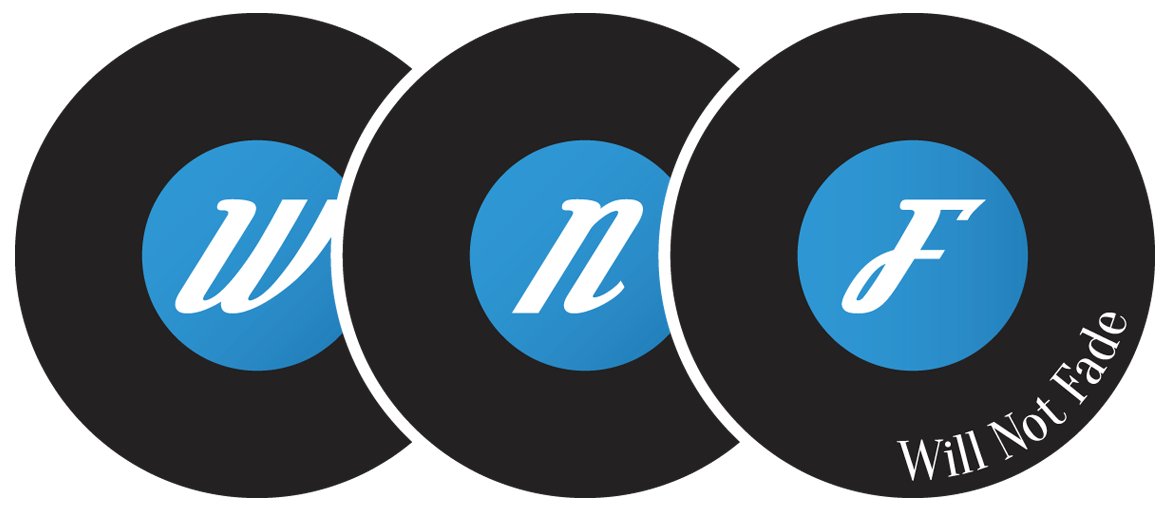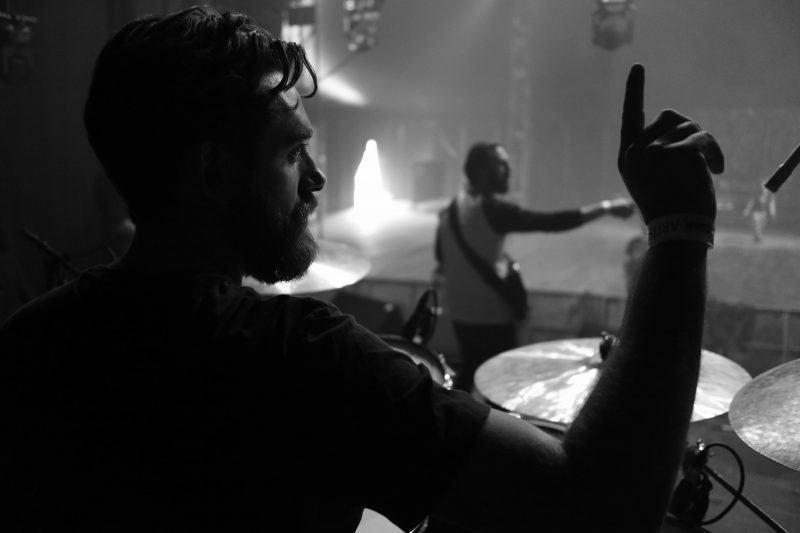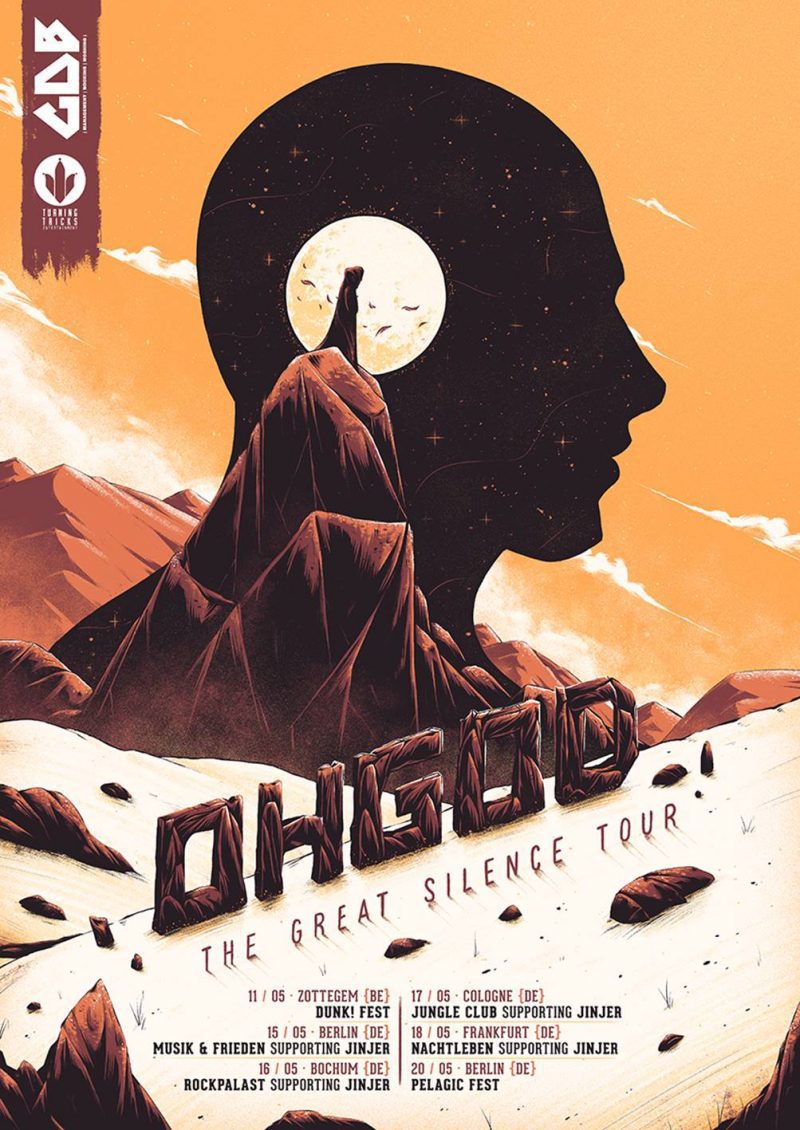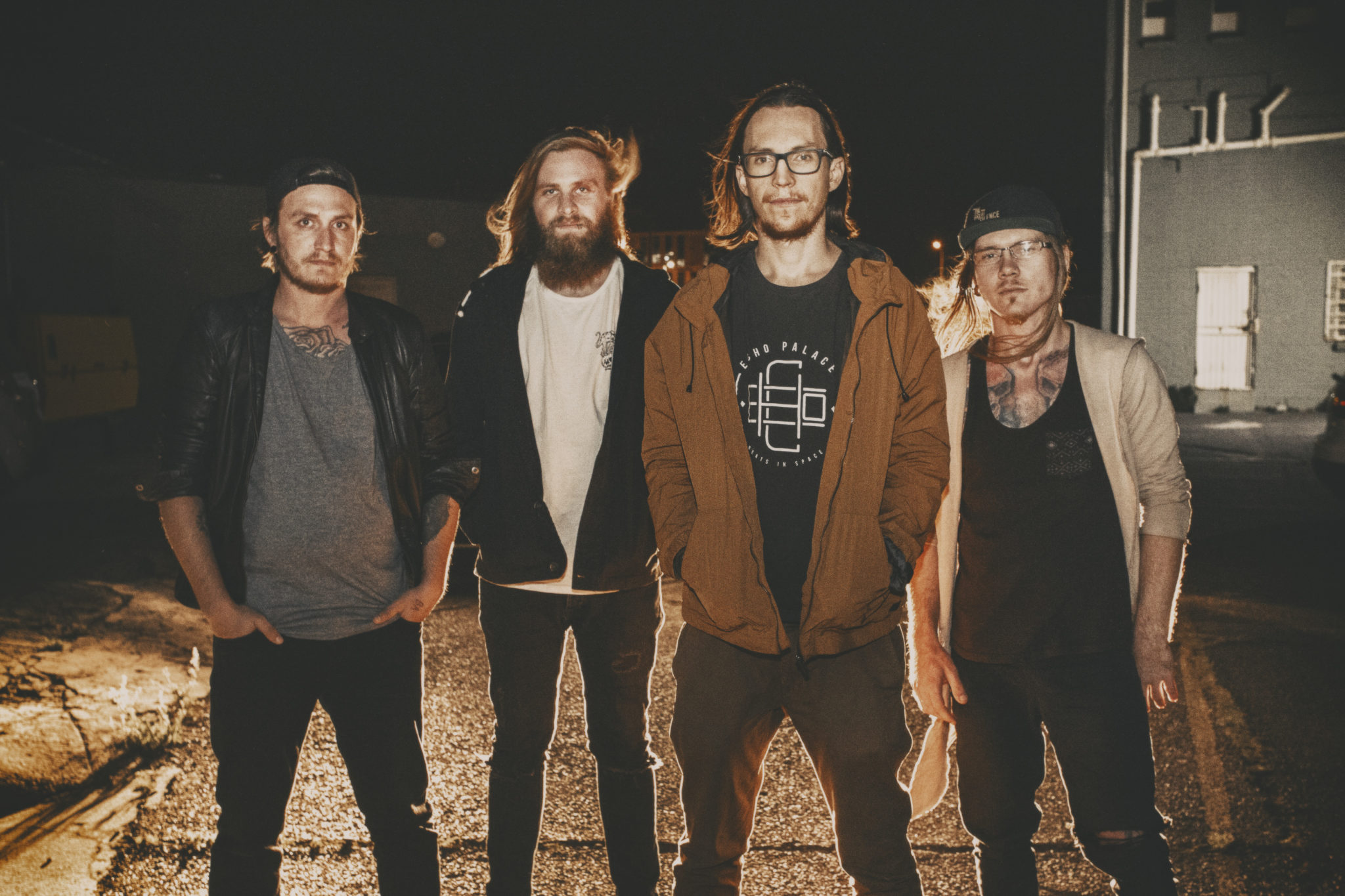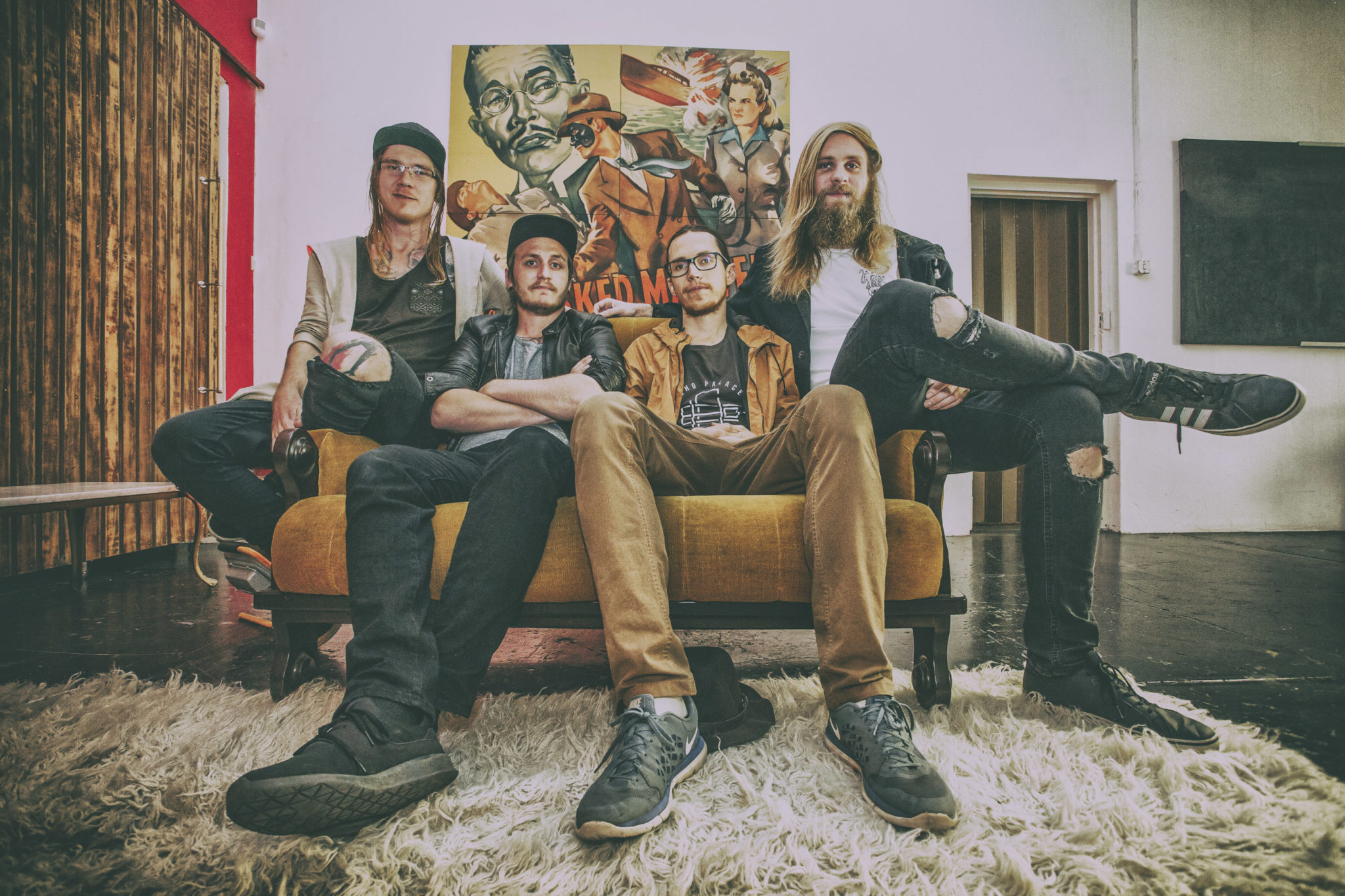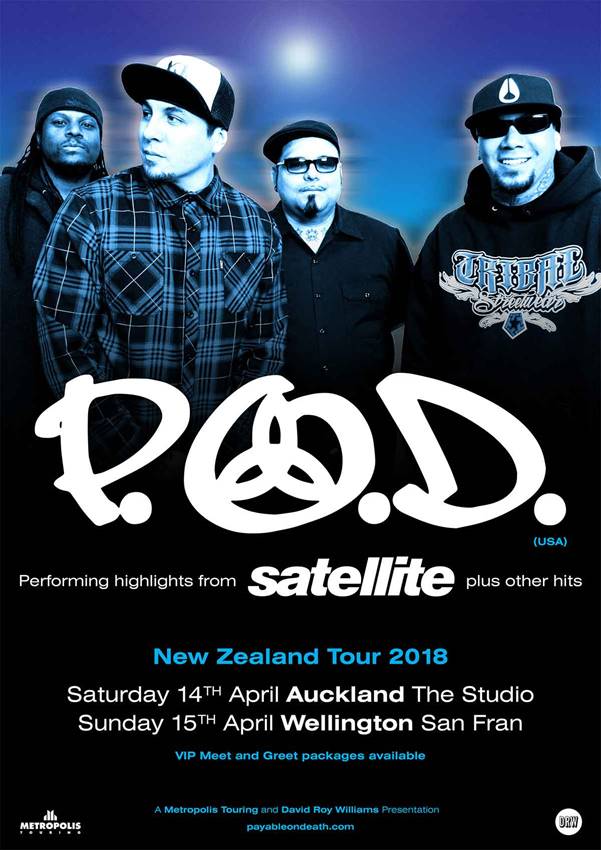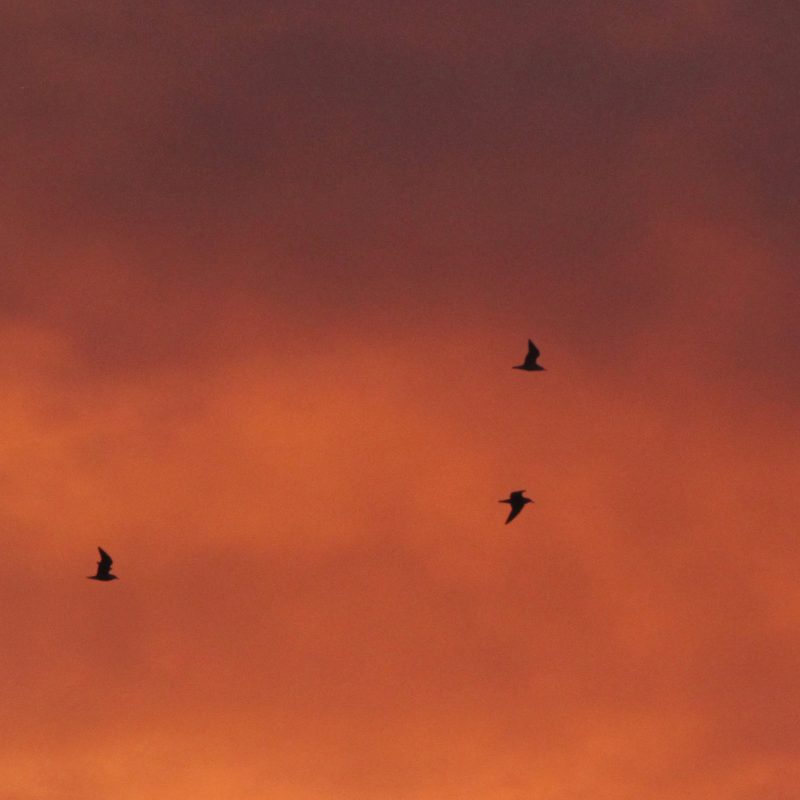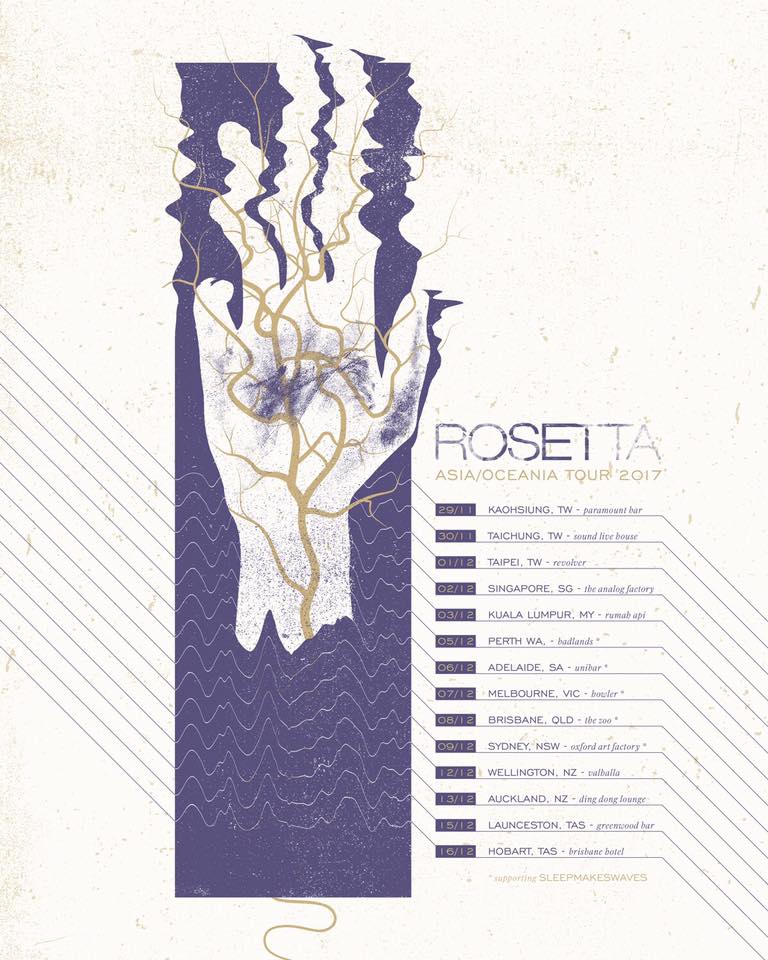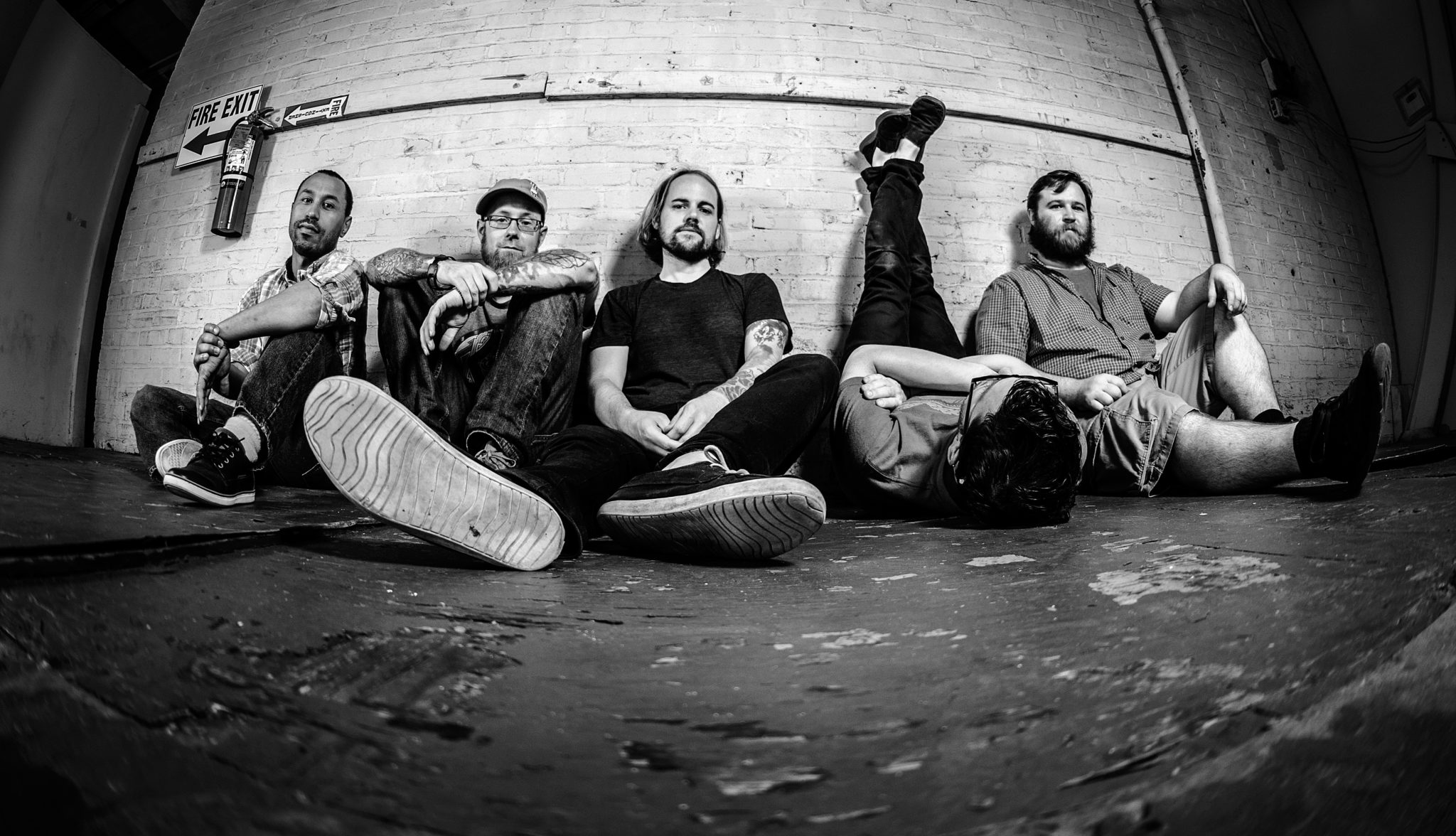I befriended Florida-based Tides of Man last year when they played a handful of shows with the band Ranges, who I was on tour with. We fast became friends, and hearing them play unreleased songs every night raised my expectations of upcoming album, Every Nothing.
They called me by my nickname of Baggins – a New Zealand/ Lord of the Rings reference that Ranges started – and we shared some great times on the road. It was a ridiculously fun week involving lots of beer, Taco Bell, sleeping in tour vans and listening to great music. I was fortunate enough to see them again half a year later, when they played dunk!festival in Belgium this May.
Their last album, Young and Courageous, stands as one of my favourites. And Every Nothing follows suit as a well-crafted, emotionally charged masterpiece.
I interviewed guitarist Spencer Gill to find out what Tides of Man have been up to in recent years, and to learn a bit more about the new record coming out.
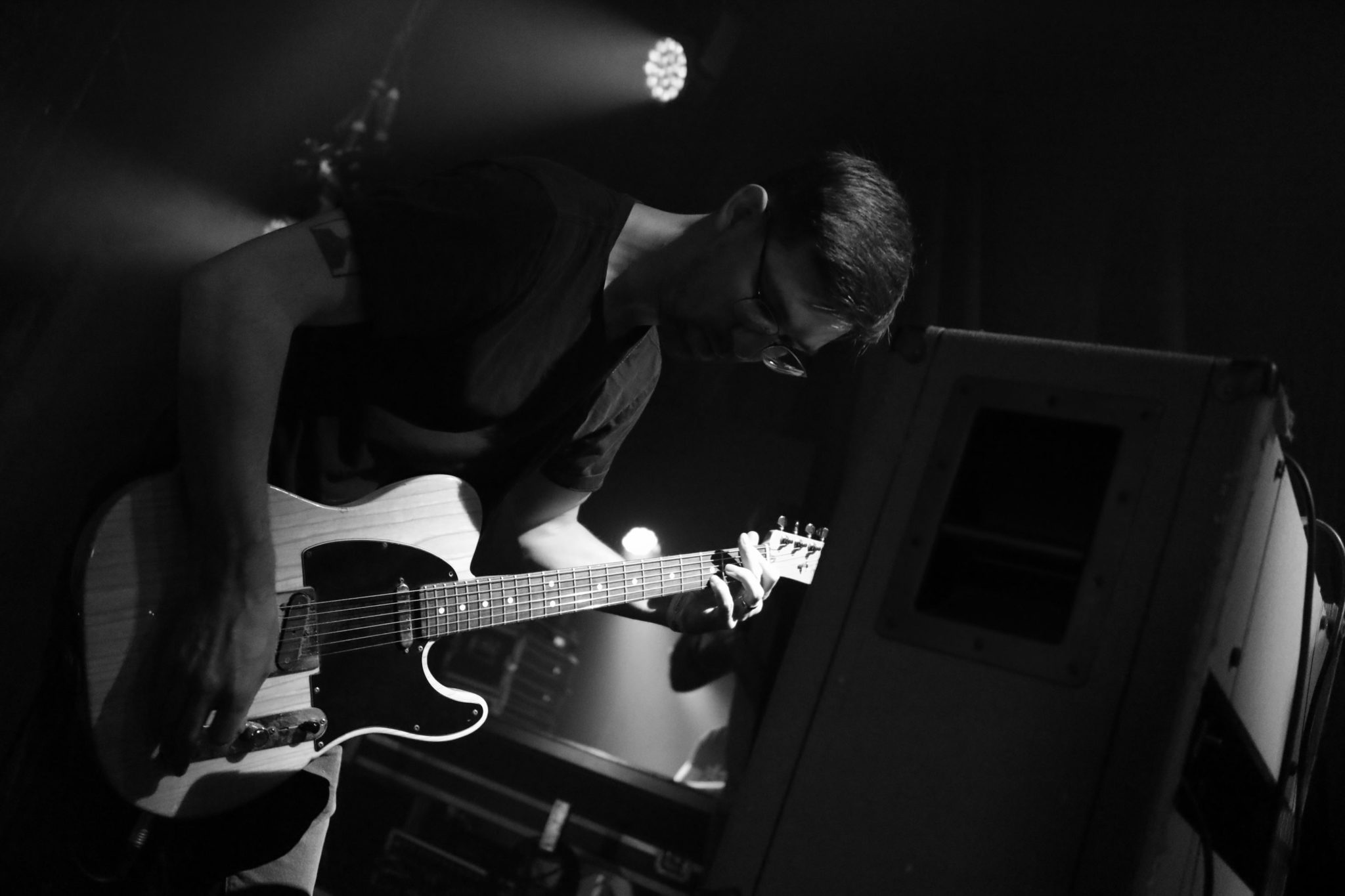
Spencer at dunk!festival 2018
Joseph James (Baggins) – Will Not Fade: First up, congrats on the new album. I know you’ve put a lot of time into Every Nothing, so it must feel good to see all that effort coming to fruition.
Let’s go back a bit to start with. Tides of Man started off as an entirely different sounding project. To me, your earlier albums sound like Coheed & Cambria. Then Tilian (vocals) left, and after failing to choose on a new singer, you decided to continue without one. How did your old fans react to Young and Courageous being an instrumental album?
Spencer Gill – Tides of Man: Our old fans were very open to our new sound. We had overwhelming support on our crowdfunding campaign from our existing fanbase and a lot of people were very happy with the transition. Of course there were people who didn’t appreciate the transition, but that’s completely natural in any big change I think.
How does writing instrumental music compare to writing music that features lyrics?
It’s definitely different. You can’t rely on a Verse/Chorus structure, and you have a lot more space to fill than if there were vocals there. I think each part has to be chosen carefully and you have to keep the melody interesting. The feel of a build, or the tone of an individual instrument suddenly becomes very important when it’s not sitting back in the mix underneath vocals.
Does your music have a message? What inspires the songwriting process?
We like to be subtle with our message. We feel that music (especially instrumental) has a lot to do with the listener’s personal connection to it. We definitely have a certain theme in mind for each album, but we like to leave a little interpretation there for the listener.
Inspiration for us comes from so many different things. Dan could be listening to a new record and really like the tone of some guitar and then we kind of pull from that and write a whole new song. We could be jamming in the practice space, and all of the sudden Alan and Josh just lock into some cool groove out of nowhere. A lot of our songs start off like this, then we quickly record them and rework them until we are completely happy.
I know that a lot of people I’ve talked to discovered Tides of Man through Audiotree. Tell me about the experience of recording an Audiotree session.
That was full-on nerve racking. But the guys at Audiotree made it so smooth, and were very nice to us. They guided us through the whole thing.
We thought it turned out great, and the recording quality was unreal! We are super thankful to Audiotree for having us on there, and we have definitely noticed that as one of the top ways that people have discovered our new music.
It has been four years since you released your last record. Talk me through what you’ve been doing since then.
Writing, jamming, re-writing, scratching everything all together, fully second guessing all of our ability to write anything again, then re-writing again. In the end, we are finally happy with our new record and proud to put it out. We have put a lot of late nights into this album and we made it a point to never compromise if we didn’t like something. We kept working at it until we were happy.
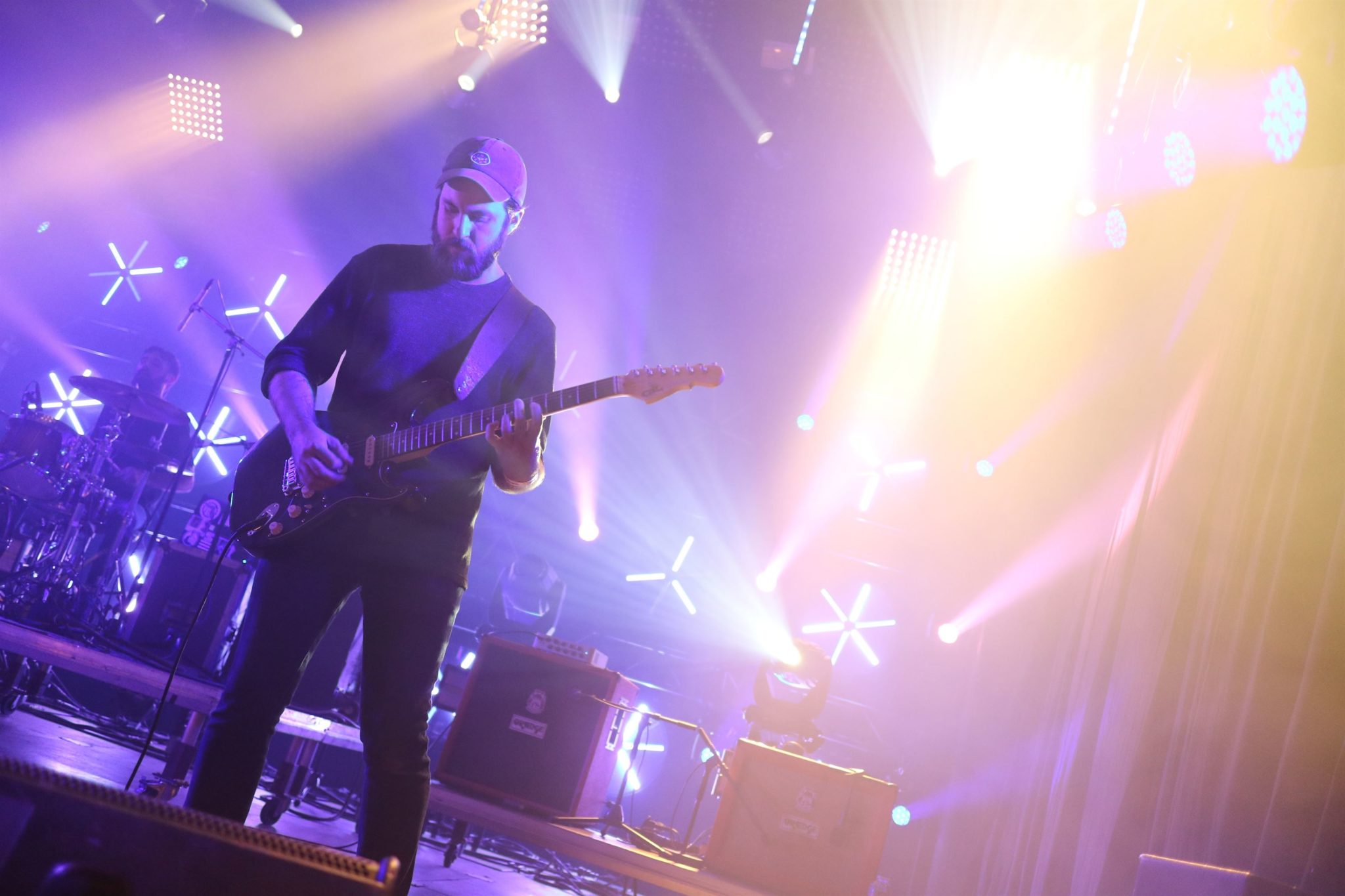
Dan at dunk!festival 2018
This is your fourth studio album. How have things changed since you released your first EP ten years ago?
Ha! We are better musicians for sure. We know our way around a studio now, and can really focus on getting great tones and making the studio make the song even better. Before, we were scared of the metronome, and had no idea what we were doing as far as amp selection, drum selection, production, etc. But I think every band goes through that transition of getting familiar with the studio and then using it to their advantage.
Are emo fringes ever going to come back in fashion?
Did they ever go out of fashion? Is this because we used to rock that haircut?
Haha maybe…
You used crowd funding when recording Young and Courageous. Why didn’t you opt to do that again for Every Nothing?
The last crowd funding campaign was awesome, but we always intended to make the band support itself as a business. Putting out Young and Courageous on our own without a label allowed us to make that a reality. We wanted to make the band do Every Nothing on it’s own dime. It forced us to make decisions with our money and be responsible not only as musicians, but as a business.
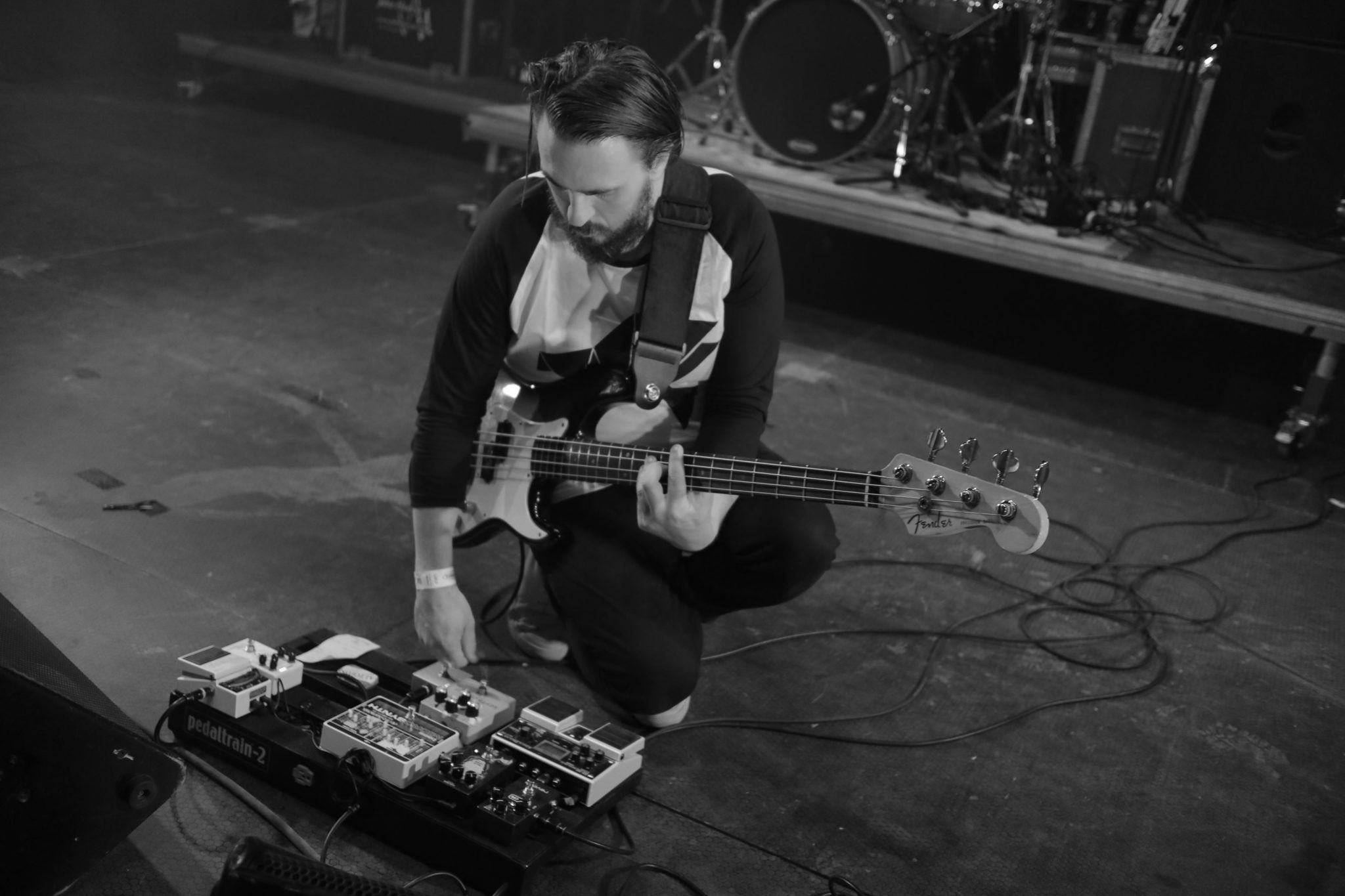
Alan at dunk!festival 2018
On a related note, how does recording and releasing an album independently compare to when you were signed to Rise Records?
There’s a lot more work involved to be short. When you are on a label, you get booked in a studio and show up to record your album. They take care of marketing, packaging, design, distribution, etc. That’s all on us as an independent band.
We are involved in every aspect of the release of the record, right down to arguing about what exactly should be on the center label of the vinyl.
A Thousand Arms are awesome, and I love those guys so much, but is there an easier option for ordering the record for those of us who don’t live in America?
We are in the works of setting up European distribution of vinyl.
Every Nothing sounds a lot heavier than Young and Courageous. Was this a conscious decision you made when songwriting?
I think it was a natural progression that just sort of happened. The quiet parts are quieter, and the loud parts are louder. That’s how we felt at the time of writing these particular songs.
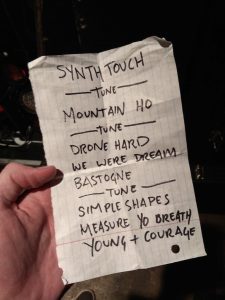
Tides Of Man setlist from their US tour last year
I notice that the song names written on your setlist from tour last year differ from the new album track names. Have you renamed them, or are there some b-sides in the works?
We have horrible working titles for our tracks, and we have them for so long that we tend to remember them as that title rather than the actual title on the record. A B-Side or two may be in the works, but no promises.
Joel Frieders discovered that on your last album, the track “Hold Still” starts like the Yo Gabba Gabba song by the same name. Have you hidden any Easter eggs like that on the new record?
Ha! That was an absolute coincidence. Someone told me the other day that it apparently has a train noise in a section of it too.
As far as we know, there are no similarities to any children’s tv shows in our music, but we would be happy to find out after the fact that we accidentally ripped off Barney.
Many of you work as studio musicians. Which has more pressure: playing for other musicians, or working on your own project?
Playing for other musicians is definitely a job in and of itself, and we always want to deliver exactly what each client wants, so there is pressure for sure.
But writing your own music has so much more. It’s hard to explain why, but it feels like you are laying your identity on the line with each note, and if you mess it up you’re done for.
I know that the artwork was one of last things that you sorted out for this album. Would you care to talk about the album cover and general art direction? I know that Dan does design, and Alan is a photographer, so the visuals must be important to you.
Design is definitely important to us. As an instrumental band, all we have to communicate the feel of the record is the design and song titles, so we spend a lot of time throwing ideas back and forth on the direction and how it fits the album. On this one we wanted something that showed mundane everyday existence against pure nothingness. The album is really about the interplay between our fixation on mundane, meaningless things and the bigger picture that we forget to look at.
I should also add that the video for “Static Hymn” is great.
Thanks! Stephen Mlinarcik brought that idea to life! He was awesome to work with.
Tides of Man is based in Tampa, Florida, but Josh lives in London, and last I heard, Alan lives in LA. How do you make it work with such big distances between you all?
Luckily we all enjoy traveling. We always have a home base in Tampa, and Josh and Alan never hesitate to fly in and stay for a while. We’ve never had a problem with the distance.
I’ve seen you play at dunk!festival in both the US and Belgium and you have Arctangent coming up. Does your approach change between playing festivals and standard shows?
We try to simply play our music well and feel it with the crowd. I don’t think that should be any different between festivals and standard shows.
You’ve played with some great bands during your career. I can imagine that the Karnivool tour would have been incredible. And you were all buzzing when I last saw you in Europe after playing with EF and aswekeepsearching. Which bands have you most enjoy playing with, and who do you still to aspire to share a stage with?
Karnivool was definitely a treat to watch every night. We also really enjoyed playing with Rare Futures (formerly Happy Body, Slow Brain). Of course, touring with Covet and Vasudeva was awesome! Those guys are super talented. Ranges was also awesome to tour with. There’s too many good times to pick and choose which tour we were most grateful for. We have made amazing friends from all over the world because we are able to go out and tour. It’s just been amazing from the get go.
In the future we’d love to tour with This Will Destroy You, Russian Circles, Mogwai, Circa Survive, Thrice, and many more.
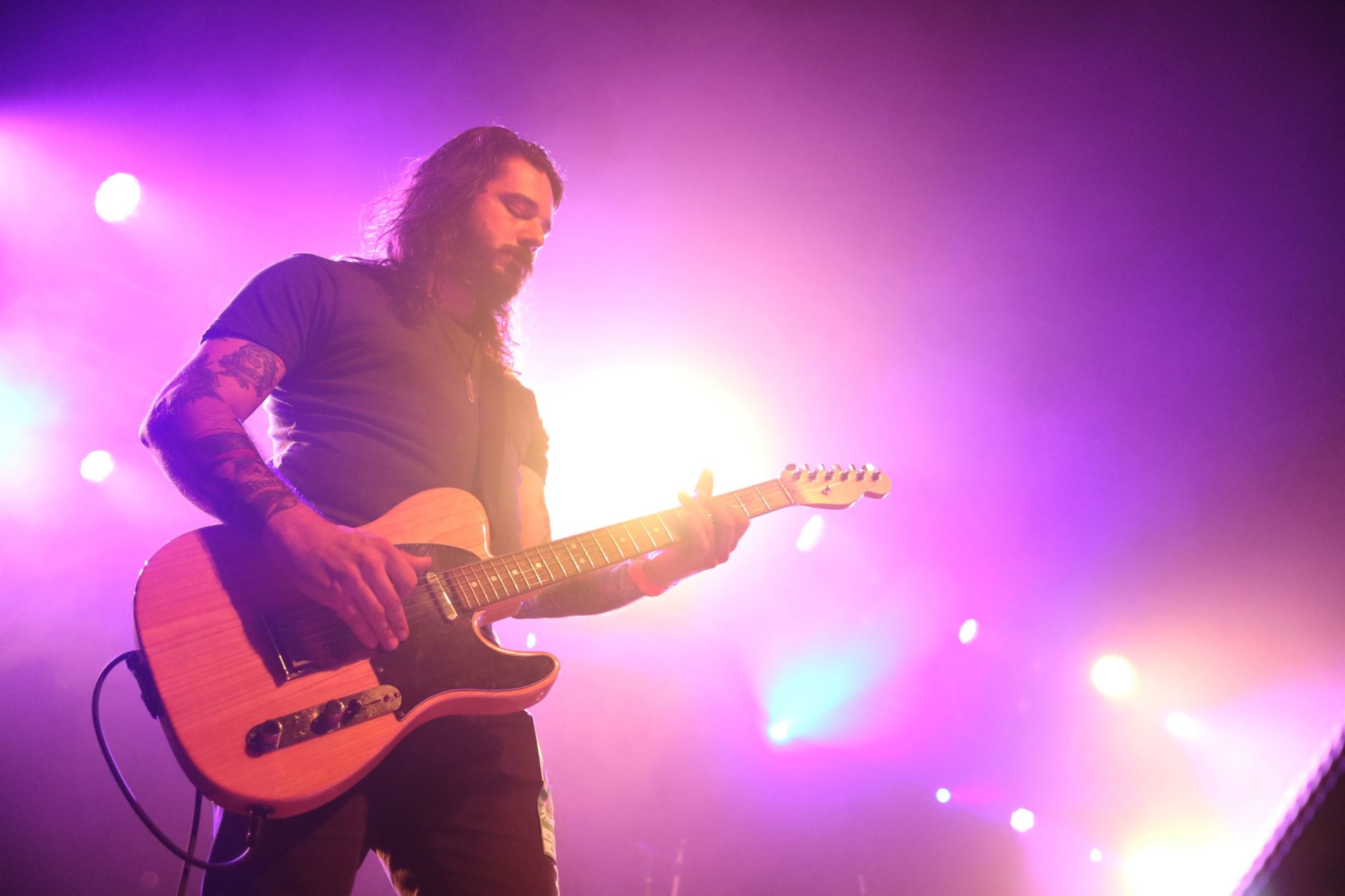
Vinny Capitani playing with Tides of Man at dunk!USA festival 2017
We’ve all spent our fair share of time sleeping in vans. Do your wives/girlfriends get jealous that you sleep beside Vinny Capitani on tour?
They were absolutely jealous until he removed his beautiful locks. Now, not so much.
What are some of the most important lessons you’ve learnt about touring as a band?
If you don’t constantly try to improve as a band, and tackle something bigger you end up nagging at each other over stupid shit. We’ve learned this from personal experience. You always have to be pushing yourselves towards being better as a band, and you can never get stuck on the losses.
You’ve all eaten a lot of taco bell in your time, having been sponsored by Taco Bell through the Feed The Beat program. What are your top tips for making the most of the Taco Bell menu? I’m happy to hear vegan options too, seeing as a few of you are vegan.
- Order anything grilled “extra crispy”
- Add a lot of Fire Sauce
- Get that creamy jalapeño sauce too
- If you’re vegan, get on that Fresco menu. It’s great.
My favourite memory of the times spent with Tides of Man was when we went on an adventure in New Jersey, exploring the “Gates of Hell” during the time between load in and sound check. What are some other memorable adventures that you’ve been on as a band?
So many amazing memories as a band! Driving all night to see Moab, Utah at sunrise. A day off at Cedar Point Park back in 2010 when we rode coasters all day with the entire tour party. Sky Diving at sunset on the coast of California. No A/C in the van for 5 days in Texas. Holding up signs at shows to find a place to stay for the night. Seeing Europe and the UK for the first time. Taking shots of “Red Death” in Tours, France. These are just a few.
Every Nothing is due out in August. What upcoming plans do you have for the band?
We are playing Fete De Lion festival August 3rd, and then ArcTanGent festival August 18th, and we plan to do a Europe/UK run in-between the two. Later in the fall we will be doing a US run.
Thank you so much for taking the time to answer these questions. I’m enjoying the new record and I’m sure that you are excited to share it with the rest of the world shortly. Is there anything else that you would like to mention?
Yes, thank you Baggins. Only other thing to mention is that you can pre-order our album now over at A Thousand Arms website. Check it out.
Tides of Man pre-order options at A Thousand Arms: https://athousandarms.store/collections/tidesofman
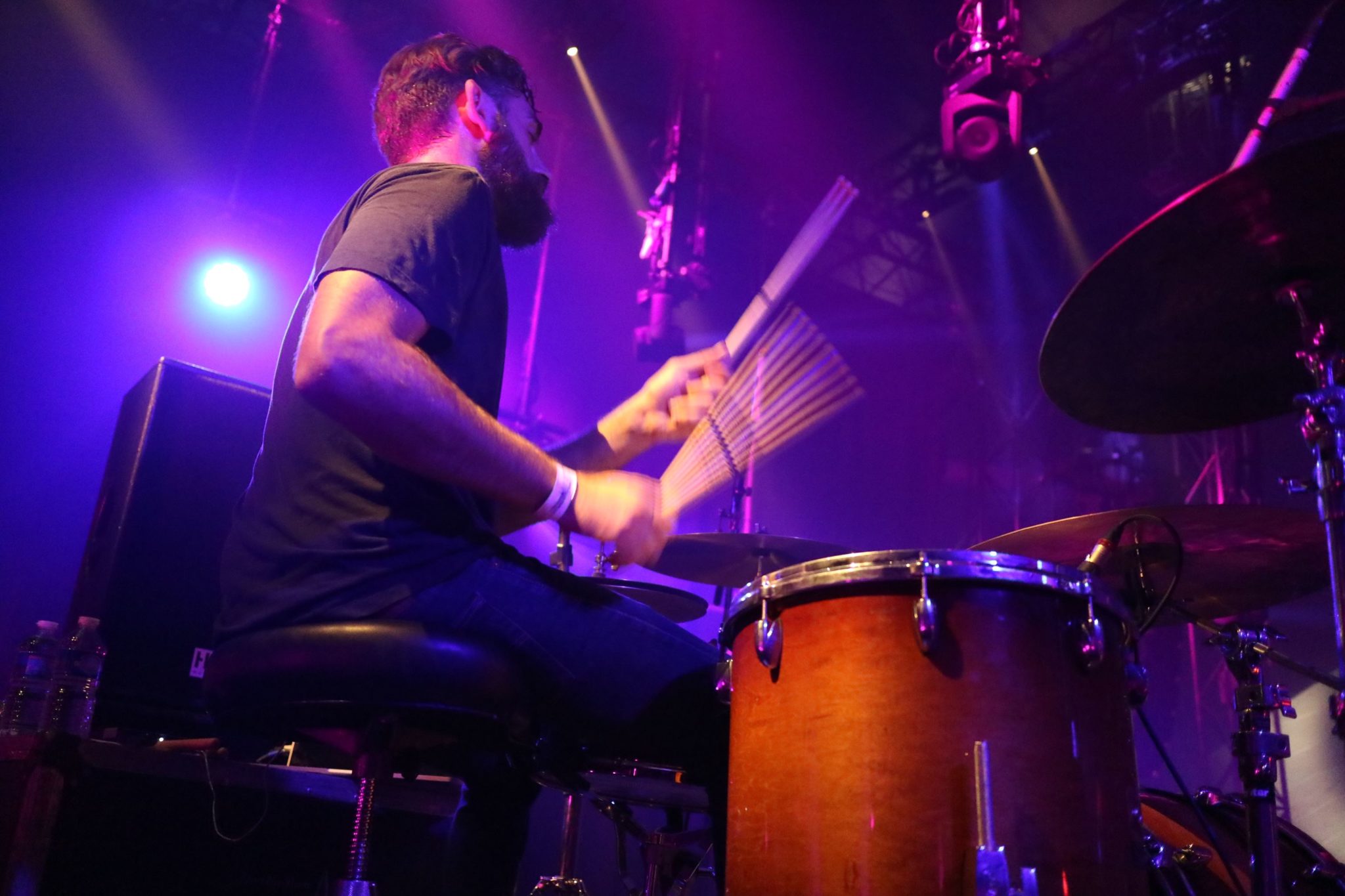
Josh at dunk!festival 2018
Tides of Man links:
Facebook: https://www.facebook.com/tidesofman/
Bandcamp: https://tidesofman.bandcamp.com/
Twitter: https://twitter.com/tidesofman
Instagram: https://www.instagram.com/tidesofman/
Youtube: https://www.youtube.com/channel/UCGu5lp7dVJNbsYCEjN2Mk_A
All photos by Joseph James (aka Baggins) except a few embedded from Dan’s instagram.
